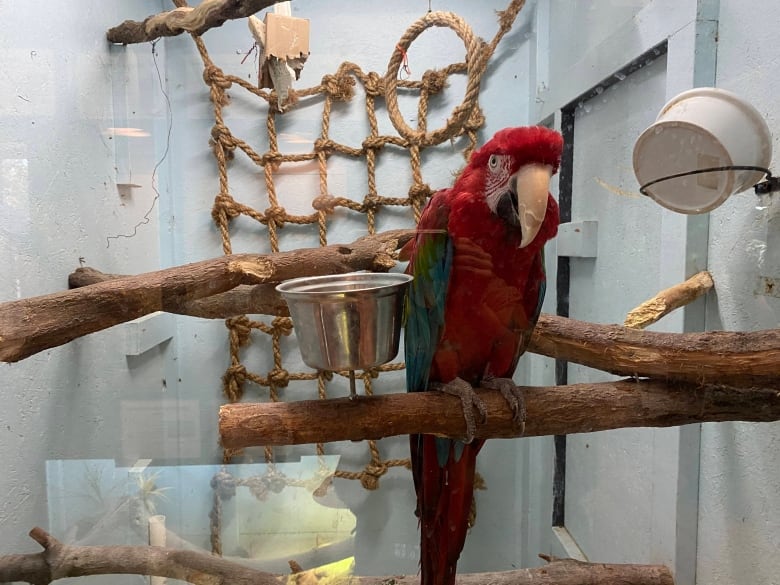Sudbury, Ont., rescue centre says its doing its best following scrutiny on ability to care for animals - CBC.ca
An organization called World Animal Protection has identified a Sudbury, Ont., animal rescue centre as one of 11 facilities in the province that violate Ontario regulations.
Michèle Hamers, a campaign manager with World Animal Protection, said the enclosures at Northern Exotics, in Sudbury, are too small.
Hamers said the reptiles at Northern Exotics could only engage in their resting behaviours due to limited space.
"Reptiles are incredibly diverse, are incredibly mobile, have interesting behaviours like play behaviours and others, and these animals weren't able to to engage in those because of the small tanks that they are kept in," she said.
We have two, two alligators, we have a crocodile, we have a Burmese python, we have primates, we have a porcupine.— Dennis Epp, owner of Northern Exotics in Sudbury
Hamers said World Animal Protection visited facilities across the province and submitted reports to the Provincial Animal Welfare Services (PAWS) inspectorate, which is responsible for enforcing provincial regulations on animal welfare.
Hamers said the province confirmed it received their reports, but hasn't said more.
"In our opinion, none of the zoos are doing it right or are doing it right enough," Hamers said.
She added that while representatives with World Animal Protection visited zoos like Northern Exotics, they did not speak with the owners.

Animal rescue
Dennis Epp, the owner of Northern Exotics, told CBC News the majority of their animals are drop-offs and rescues.
"We use their stories to educate people about them," he said.
"And that's why you'll see with a lot of our animals are missing parts of their tails or they have other healed injuries, which come from their past lives before they came to us."
Epp said he has a background in conservation, biology and environmental sciences, and loves animals. He said he does not support people who acquire large exotic animals but wants to ensure when they are abandoned or relinquished, they have somewhere to go.

"Animals have always been a big part of my life," he said.
Northern Exotics has an education centre, where visitors pay a small fee to see the animals and learn about them. It also has a pet store attached, which sells common lizards, turtles and birds, and keeps the education centre running.
"We do have a few others that shouldn't be in the pet trade, but they're here as well because some people thought they should try," he said.
It's not a perfect world. And it gets to the point where you've just got to do the best you can for what it is.— Dennis Epp, owner of Northern Exotics in Sudbury
"We have two, two alligators, we have a crocodile, we have a Burmese python, we have primates, we have a porcupine."
He said their nine-foot Burmese python was kept in a duffel bag its entire life, before someone bought it for $50 and brought it to them.
"And now she has like, it's not maybe as big as some would like to see for her, but it's far better than what she was living in," Epp said.
"She couldn't even roll. She was just in a duffel bag."

Before the COVID-19 pandemic, Epp said the Society for the Protection of Animals (SPCA) inspected Northern Exotics twice per year and never gave them recommendations.
Inspections have been less frequent since the pandemic.
Epp said he would like to have more space for the animals, and has been looking to move to a larger space. But rising interest rates have made that difficult. However, he said the facility has a year remaining on its lease. He hopes to have a larger building secured by then.
"We know we're limited on space, and we want out," he said.
"It's not a perfect world. And it gets to the point where you've just got to do the best you can for what it is. When we get that lizard dropped off in a small container, yeah we put him in a much bigger thing where he can do stuff, but it may not be as big as some other people would like."


Comments
Post a Comment